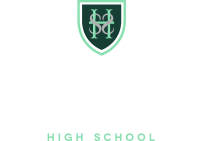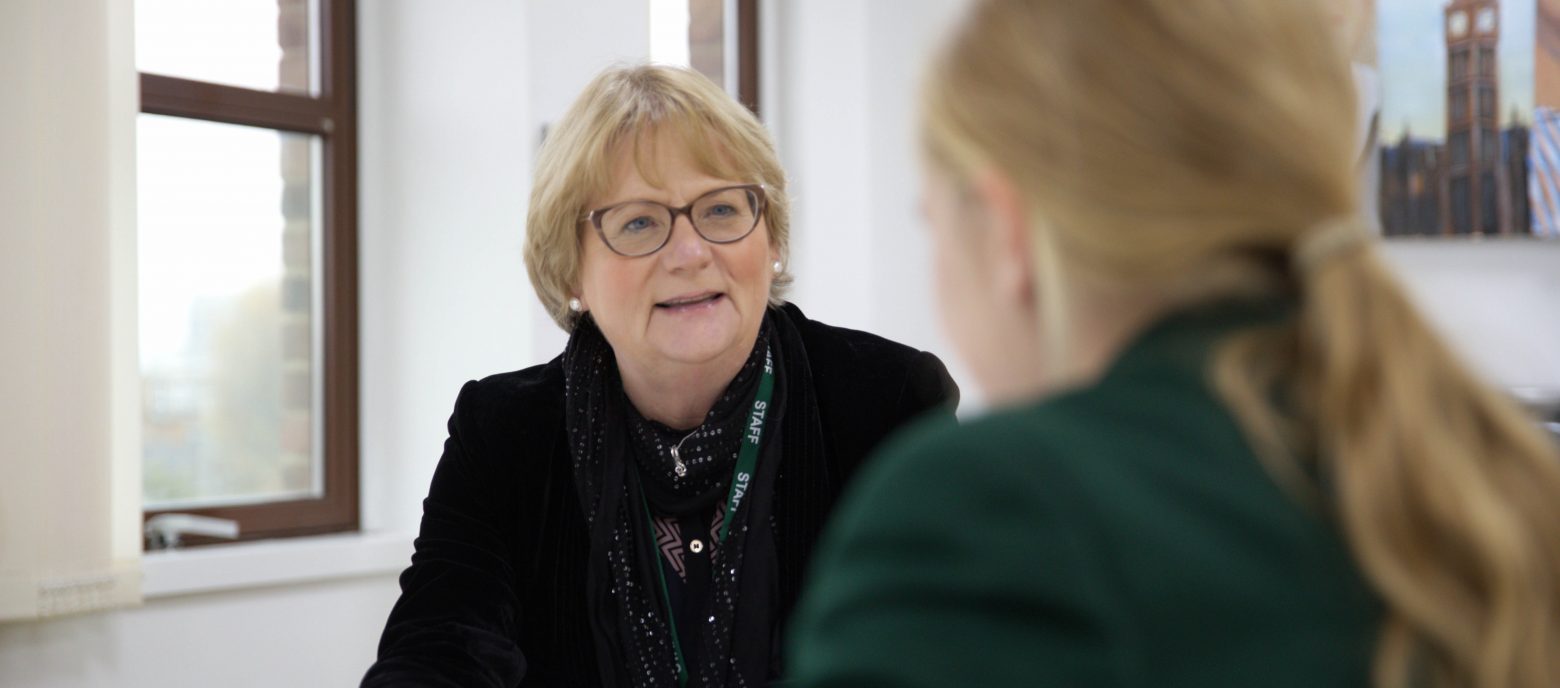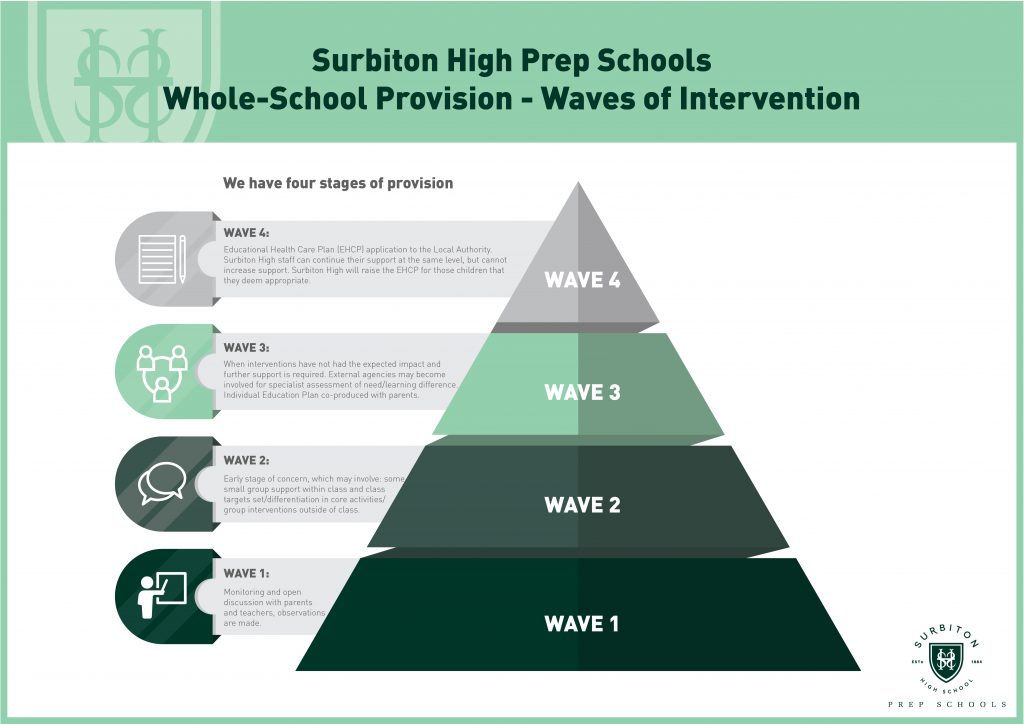Learning Support in Senior School
The Learning Support Department works closely with pupils who need an additional level of support outside of the classroom.
Pupils in the Senior School are monitored from the year of entry and assessed using a diagnostic screener in Years 7, 8, 9 and 12. These assessments are used to inform teachers on best support practice for the pupil in the classroom and to determine whether further external assessment is required.
The team works with pupils, individually or in small groups, to assist them in planning and organisation, revision skills and study skills. They also offer handwriting and touch typing as well as academic support to those pupils who require guidance or have a Learner Profile.
The internal referral system for teachers to request support and/or assessment ensures pupils who would benefit from additional support are recognised, timetables adapted to allow them to focus on study skills, coursework, assignments or revision.
English as an Additional Language (EAL)
Specially tailored EAL lessons benefit pupils across the whole curriculum and ensure the best outcomes in examinations. At the start of each academic year, a pupil’s grammar knowledge is assessed, and a bespoke programme created to address any gaps. Teaching is through either one-to-one, or small group work.
Pupils are also prepared for the internationally recognised Cambridge Exams, The Key for Schools A2, The Preliminary for Schools B1, The First for Schools B2, the CIE IGCSE ESOL and the IELTS qualifications. Preparation for these exams develops an individual’s fluency and confidence as well as expanding their vocabulary and provides practice for working under timed conditions. This ensures pupils are ably equipped to sit their public examinations in Years 11 and 13.
Learning Support in Prep Schools
The Learning Support team at Surbiton High Prep Schools is made up of four Learning Support teachers with specialist training in assessing and teaching specific learning difficulties; three Emotional Literacy Support Assistants (ELSAs); a Lead Well-Being Mentor; and a Teaching Assistant with expertise in physical development/sensory support.
All pupil progress is monitored and reviewed at regular intervals throughout the year. At the start of Year 3 and Year 5 (where necessary), pupils are screened by the Learning Support team for a variety of learning differences using the dyslexia screener from GL Assessment. If at any stage there is a concern for the academic progress of a pupil, additional internal individual assessments can be used.
Pupils with scores that show a significant difference between reading and verbal ability are further assessed by a specialist in the department, following parental liaison. Strategies for in-class support may then be recommended, or 1:1 or paired Learning Support lessons outside of class may be offered. Some pupils might not receive further support but are carefully monitored by the Learning Support team.
When pupils are identified as having Special Educational Needs (SEN)/learning differences, it may be appropriate to seek advice from external agencies such as Educational Psychologists/Occupational Therapists/Speech and Language Therapists. An Individual Education Plan (IEP) is created for pupils who have reports from external agencies or in some cases if they are having 1:1 Learning Support lessons with personalised targets and measurable outcomes.
English as an Additional Language (EAL)
EAL lessons are offered to pupils who speak another language at home or for those who have recently moved to the UK and would like to improve their English language skills. EAL lessons help pupils improve their understanding and achieve their very best in all areas of the curriculum. EAL pupils are usually identified on entry or via a class teacher referral. Their grammar and vocabulary is assessed using age-appropriate assessments and then a dynamic bespoke EAL programme is created by the specialist EAL teachers.
All EAL lessons complement the curriculum and are taught in a fun and engaging way to build confidence in all the four skills: listening, reading, writing and speaking. We aim to incorporate lots of speaking practice to drill unusual pronunciation and model correctly formed sentences and we use a variety of different resources to stimulate the curiosity of our young learners of English. Regular contact is made with the class teacher throughout each term to monitor progress and depending on the timetable, EAL lessons are usually taught one to one, paired or in a group lesson.
Learn more about our Aims & Ethos.






